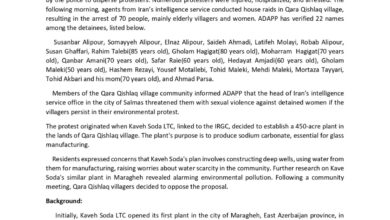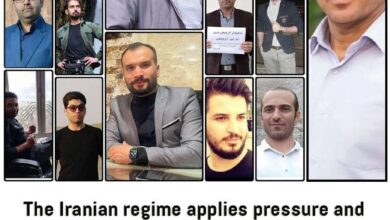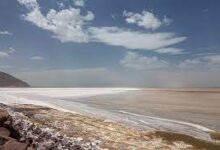
Iran and Iraq started an eight-year bloody war 40 years ago. Considered one of the longest wars in modern history, this event has caused a lot of controversy in the political arena. Iran knew its Western neighbor, Iraq, as the country that started the war, and the issue was accepted by the United Nations. At the end of 8 years, hundreds of thousands of people were killed and wounded in the war that ended without changing the borders of the two countries.
According to reports, 190,000 people died on the Iranian side in this war. Iran also suffered $ 97 billion in material damage over eight years. It is also reported that more than 5 million people in Iran took part in the war. Fear has prevailed in Iran for years. The Islamic Republic of Iran called the war years “Holy War.” Ruhullah Khomeini, with his central character and charismatic leadership, was able to suppress all kinds of political opposition in the country for many years. For years, no political opposition was allowed in Iran, and the state established a completely fearful government. At the same time, the disintegration of the classical army due to regime change weakened Iran’s hand in the war. But at that time, with the participation of an unprecedented nation, the battle fields were full of young people.
Ruhollah Khomeini took advantage of his leadership and invited the young men of the country to the front lines, and this was met with great warmth during the war years. Especially during the war, Azerbaijanis filled the fronts miles away from their ancestral homes. However, the inexperience of the newly formed Sipah force, especially in the first years of the war, led to the death of tens of thousands of people in vain. This issue has led to serious opposition even within Sipah. Millions of people tasted the bitterness of war, but they could not say a word about how it was governed. In those years, any criticism of the war was quickly suppressed by the opposition to the original government. For Iran, the years of the Holy War were in fact a sacred period in the name of silencing political opponents.
But now, years later, the Holy War still seems to be a weapon in the hands of the government to suppress political opposition. The loss of a large number of lives and the spending of billions of dollars during the years of the eight-year war shows that there is a serious weakness in governance. There are still many secrets that the war is trying to hide, which can turn into a serious political crisis. Ali Khamenei attended the anniversary of the war this year for Korona from afar. However, he did not hesitate to turn a blind eye to the opposition. Khamenei also defended the decision of Ruhollah Khomeini, who decided to stop at the end of the war. Ali Khamenei’s talks this time around are being read by some political analysts as a sign of new talks with the United States.
There is a serious difference between the place of Ruhollah Khomeini 40 years ago and the place of Ali Khamenei today. At that time, especially Azerbaijanis were on the front lines, but today they are in conflict with the government on many key issues. Ali Khamenei is well aware of how far the nation is from power today. Therefore, in the current situation, he is looking for a way out from anywhere to maintain his power.







